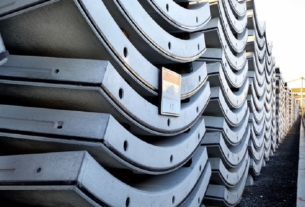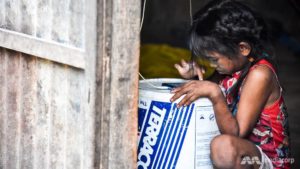
Entire Thai village without electricity is now powered by solar energy
See also: Thai village without electricity for 60 years receives power from solar energy
Patcharin In-juang was pregnant when she agreed to move to the home village of her husband in Pranburi district in central Thailand back in 2004. She was from the city, so she was expecting a different life in the rural community.
But she was shocked to find out when she arrived at Wong Wan village that her new home had no access to electricity. It was a detail her husband had failed to mention.
“It was so hard to adjust myself. My life changed a lot,” she said. “I had to carry a flashlight with me. I had to learn how to cook rice without a rice cooker. There was no fan. I had to sleep on the floor so that I could feel some coldness from the cement floor.
“I had to learn how to live without electricity. It was like learning to walk again,” she said.
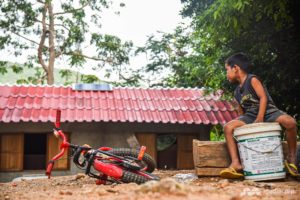
In 2018, solar panels were installed on the last of the 400 homes in Wong Wan, under a community-led initiative that finally solved a problem that authorities had not been able to fix in decades. Their self-driven success culminated in the awarding of a global United Nations Public Service Award this year, the village dubbed the “Self-Reliant Solar Energy Community”.
“This is a celebration of their resilience and ingenuity as a community in finding an enduring and inclusive solution to their shared challenges,” said Krib Sitathani, a project manager with the United Nations Development Programme.
It was a moment of pride and celebration for the villagers. But it came after years of fighting for equality and basic human rights.
Wong Wan is one of 12 villages in Nong Ta Tam subdistrict, but unlike all of the others, its location is on land owned by Thailand’s Treasury Department and leased long-term to the military. According to a legal ruling, the land is used “as a base to train military forces, and for the suppression of Communists”.
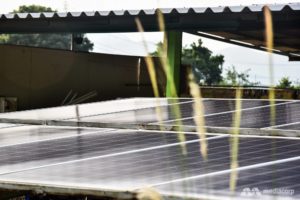
It meant that even though all Thais are guaranteed access to public utilities, including electricity, for safety and security reasons, this has been officially denied to Wong Wan.
In 2004, the same year that the pregnant Patcharin arrived, the local government looked to the skies for a solution and began rolling out the installation of solar panels to households in Nong Ta Taem. But equipping villagers with an alien technology and little to no knowledge of how to use it meant the panels were not being utilised properly.
“The first time that the government gave them to me, I did not know anything. When they were broken, I used them to dry fish and clothes,” said Sanya Pongpirom, a local villager.
The panel system fell into disrepair and disuse. Darkness remained a daily reality for residents, as it always had. The use of candles and kerosene lights provided some respite but caused fumes and posed dangers inside houses.
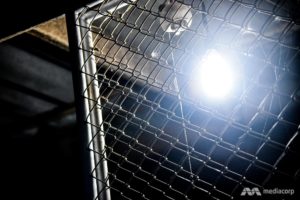
“My house had a thatched roof with bamboo walls. I lit candles. My child was sleeping and I went to see watch TV at a neighbour’s house. The wind came and the candles burned the mosquito net. The whole house was burnt down but luckily I could bring my child out safely,” Sanya said.
Growing more desperate for connection to the outside world, the village brought legal action in 2010 against the Treasury Department, Thai Military and several other government departments and agencies.
“The community demanded rights and equality as Thais, who live in Thailand, who deserve equal public services from the government,” said Songpol Srokaew, the chief administrator of Nong Ta Tam Sub-district Administration Organisation (SAO).
The Supreme Administrative Court ruled against them and extinguished any hopes of getting connected to the national power grid. It would be a further five years before the community would embark on their own efforts to harness the power of the sun.
SMILES ON FACES
With a lack of national government support or the money to finance a communal solar project, the SAO helped set up a project and a fund to assist, but it could not legally directly purchase any equipment for the village.
“The first part of the money comes from donations. The second part comes from a membership fee from people who use solar cell system in their households. And the third part comes from the donation of the batteries,” Songpol said.
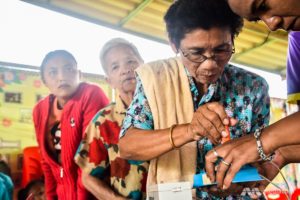
A qualified instructor was brought in to teach locals the proper way to use the panels and batteries. And interest-free loans were enabled by the fund, allowing families to slowly pay for the units, which cost about US$360, a significant burden for the residents here.
Finally, a community training centre was established on donated land. Now in particular, women are being empowered to take charge of maintaining and operating their house’ solar systems. It promotes independence and solidarity amongst the population.
“I can do it. I don’t need to rely on men. I can be my own technician,” said Waraluck Laklaem while attending a free learning session. If there are problems, however, 20 volunteer community technicians are on call to assist villagers, whose lives have rapidly improved.
“The children can read their books, can use their fans, watch TV and use computers. This makes their quality of life better and they have smiles on their faces,” Songpol said.
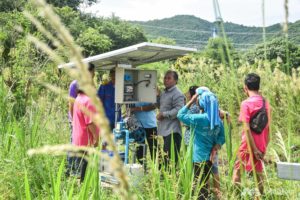
“When they watch TV, they get information and news. They open their perspectives when it comes to their livelihood. They know more information and news about this world,” he added.
Thailand has a renewable energy target for electricity of 20 per cent by 2036, as part of its commitment to ASEAN’s climate actions. According to the Asia Development Bank, the country is about half way to reaching its goal.
The community hopes that the benefits of their solar village will be seen by other villages nearby and beyond. Education is part of the sub-district strategy and discussions of green energy are already part of classroom curriculum.
“We are willing to pass on the knowledge,” he said. “We are so proud that we have solved the problem the right way.”
Additional reporting by Ryn Jirenuwat.
Source: https://www.channelnewsasia.com/news/asia/thai-village-solar-power-electricity-wong-wan-12069416

